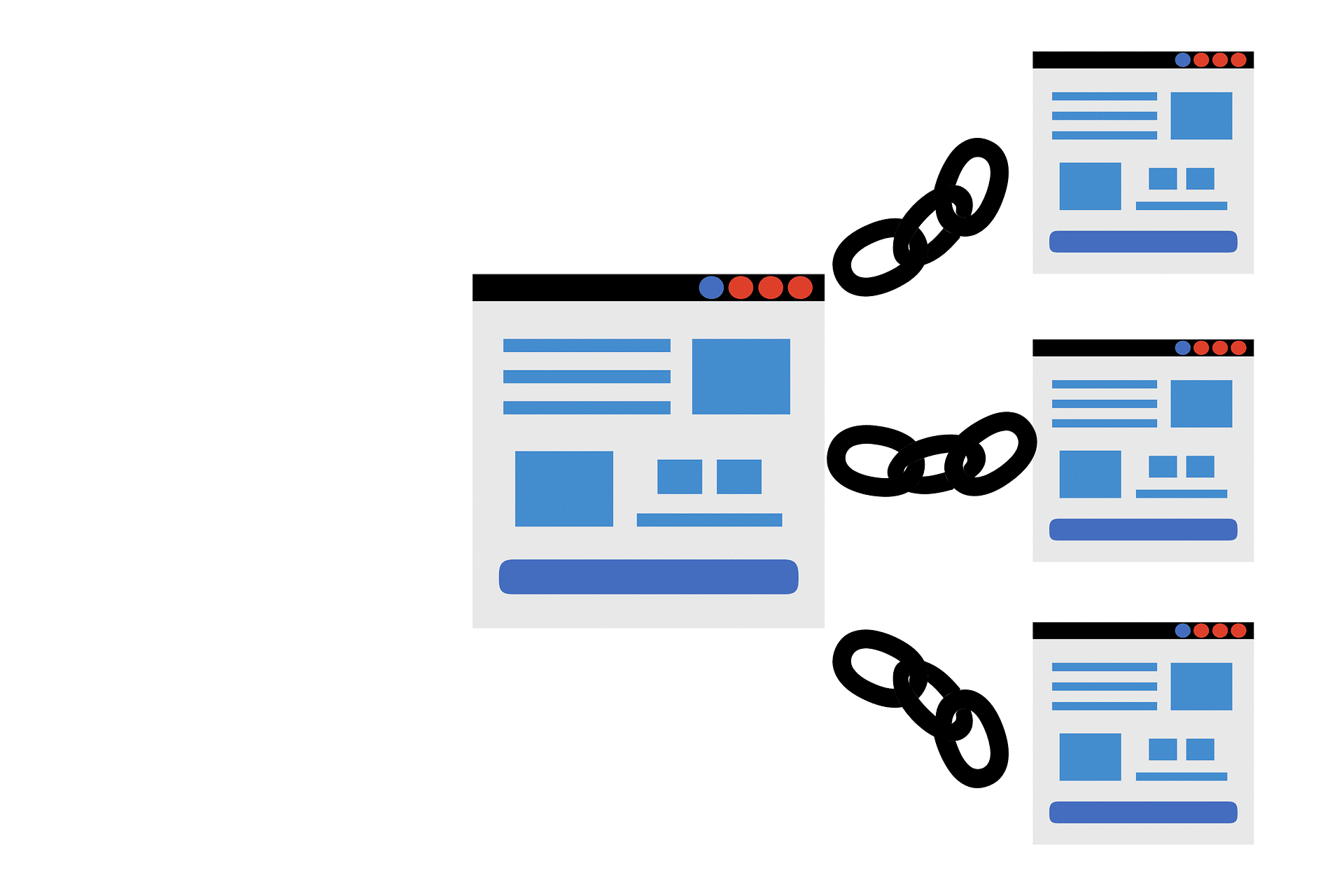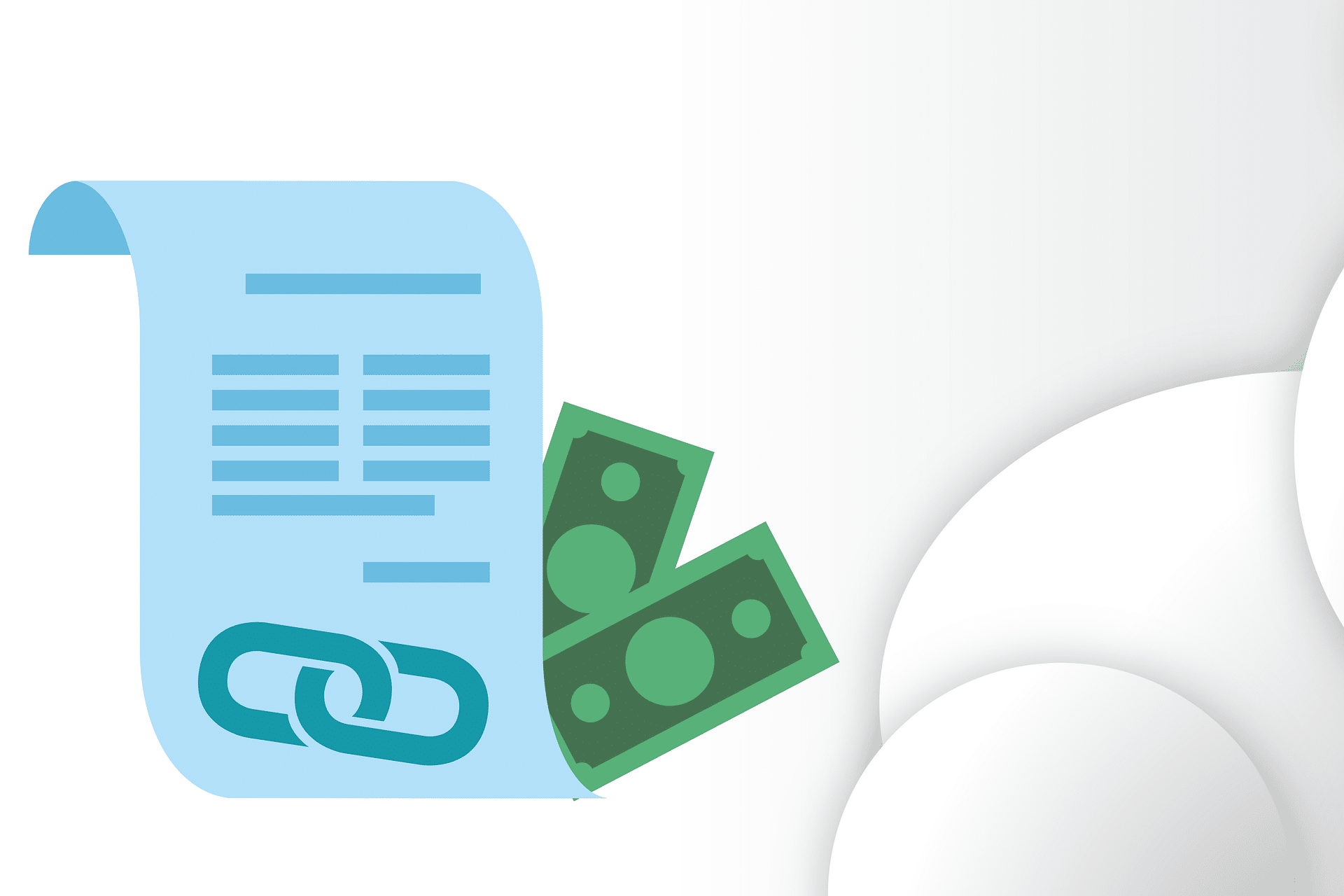If you’re new to SEO, you may see talk of “selling backlinks” in online communities and wonder – what does that mean? Backlinks are valuable for rankings, but can you really sell them?
In this post, we’ll cover the basics of how backlinks work, what’s involved in selling links, potential benefits, risks to consider, and best practices if you want to become a backlink seller or buyer.
Backlinking 101: A Quick Introduction

First, let’s recap what backlinks are and why they matter for SEO.
A backlink is when one website links to a page on your website. For example, if I mention your site in an article and link to your homepage, that’s a backlink from my site pointing to yours.
These incoming links are important because search engines like Google use them as one ranking factor. They help signal that your content is valuable and worth sharing.
More backlinks (especially from reputable sites) tend to equate to higher rankings. That’s why a common SEO tactic is “link building” – trying to acquire backlinks to improve your site’s search performance.
You can earn backlinks naturally when sites link to your great content or mention you editorially. But you can also request sites to link to you or pay for backlink placements, which brings us to…
How Selling Backlinks Works

The basic concept of selling backlinks is website owners offering paid links/placements pointing to other sites in exchange for a fee.
For example, if I have a popular website in the home improvement space, I could sell a backlink placement on one of my articles to your new ecommerce site selling home goods, for a fixed monthly price.
By paying for that backlink from my authoritative site, you’d gain some of the SEO “link juice” and authority that my site has. This helps Google view your site more favorably, which can improve your search rankings.
The price for paid backlink packages varies based on factors like:
- The authority and traffic of the site selling links
- The number of backlinks being sold
- The competitiveness of the industry
- How contextual the link placement is
As website owners are eager for authoritative backlinks, there is certainly demand for paid link building services. But selling links also comes with some controversy…
The Complexities and Controversy Around Selling Links
Paid backlink selling exists in a gray area when it comes to SEO best practices. Google aims to provide search results purely based on the merit of content, not who has paid for the most links.
That’s why Google penalizes sites caught buying or selling artificial backlinks solely to manipulate rankings. However, they do allow natural, editorial backlinks that websites earn organically.
The trouble is identifying intent behind paid links. If backlinks I sell look like natural mentions in my articles, is that still manipulation?
SEO experts have varying opinions on where the line is drawn. Some best practices to avoid crossing the line into link schemes:
- Placing paid links contextually within content instead of just site sidebars/footers
- Using varied natural anchor text instead of heavy branding
- Building links slowly over time, not all at once
- Disclosing paid links using nofollow/sponsored attributes
The bottom line – if selling links, transparency and moderation is wise. Avoid moves that look like obvious manipulation to search engines.
Now let’s explore the potential benefits for those looking to sell or buy backlinks.
The Allure and Benefits of Selling Backlinks
Done responsibly, here are some possible benefits for sellers offering paid backlink services:
- Revenue generation – Backlinks represent a way to monetize your site’s existing traffic and authority.
- Added visibility – The links you place point back to your site, sending referral traffic.
- Gain authority – More sites linking to you raises your domain authority over time.
- Link diversity – Control varying anchor text not possible with editorial links.
And for backlink buyers, benefits include:
- Rankings boost – Links from authoritative sites help improve your SEO.
- Faster results – Buying established links speeds up typical link building.
- Domain diversity – Paid links help round out your overall link profile.
- Quality assurance – Hand picking sellers gives certainty vs waiting on editorial links.
So in theory, paid backlink selling can be a win-win practice for buyers and sellers alike. But there are also potential downsides to consider.
Risks and Downsides of Selling Links
Selling backlinks has some possible disadvantages both buyers and sellers should keep in mind:
- Google penalties – Excessive link selling risks manual spam actions if deemed manipulation.
- Loss of equity – If buyers disavow links, your equity could disappear.
- Link dilution – Too many paid links water down editorially earned links over time.
- Negative PR – Low quality link selling generates bad word of mouth and more scrutiny.
- Empty value – Buying poor quality links from spam sites offers little actual SEO benefit.
- Diminishing returns – As Google’s AI evolves, paid links become less influential for rankings.
- Uncertainty – Google’s shifting stance on paid links creates uncertainty.
The main takeaway – weigh risks before aggressively selling or buying backlinks. Moderation and avoiding spam tactics is key.
A Step-By-Step Guide to Selling Links

If you want to become a backlink seller, here is a basic step-by-step process:
1. Evaluate Your Site
First, objectively assess your website. Analyze factors like domain authority, search traffic, pageviews, and current link profile. Use tools like Ahrefs to quantify your site’s power.
Generally, you need an established site in your industry to provide value as a seller.
2. Set Pricing
Research what competitive sites charge for paid placements to gauge pricing. Consider offering premium pricing if your site truly offers authority in your niche.
Factor in elements like link numbers, placement types, and whether links are nofollowed/sponsored.
3. List Your Link Offerings
Create defined backlink packages, with set pricing around number of links, optimal anchor text, page placement and other variables.
4. Promote Your Backlink Services
Once you’ve priced packages, promote your paid link offerings in communities like Facebook groups, subreddits and forums related to SEO and your industry.
Consider paid ads on platforms like Facebook to reach interested buyers, like website owners and SEO agencies.
5. Vet Buyers
Do due diligence on potential backlink buyers. Avoid selling to low-quality, spam sites. Request sample articles featuring your links for approval before publishing links.
6. Deliver Links Strategically
When paid for, add backlinks gradually over a period of time. Spread links across multiple relevant pages, using variable anchor text.
Use nofollow, sponsored or other attributes when possible to indicate paid links.
Finding the Right Backlink Buyers
Not all backlink buyers have the same motivations. Here are a few common types of buyers to assess:
SEO Agencies
Reputable SEO agencies purchase backlinks on behalf of clients from authoritative websites. They often have stricter requirements for quality.
Website Owners
Small business owners may buy links directly for their own sites. Research their industry and business to gauge if they engage in shady tactics.
Affiliate Marketers
Some affiliates try to game link schemes, while others use paid links responsibly along with content. Check their methods.
Spammers
The riskiest buyers just want the maximum quantity of links from any low-quality source. Definitely avoid selling to known spammers.
Getting references and samples of links before agreeing to sell is advised. Work only with reputable companies and clients.
Best Practices for Link Sellers
Here are some standards to uphold when selling paid backlink placements:
- Clearly label paid links using nofollow, sponsored or equivalent attributes for transparency.
- Only place links on relevant, high quality pages on your website – not commercial sidebars/footers.
- Limit the number of links sold across your site to avoid looking like a link farm.
- Manually review the placement of links before approving to ensure contextual relevance.
- Diversify anchor text – avoid over-optimizing with the same brand-heavy phrases.
- Build links slowly over time, avoiding sudden spikes.
- Disclose paid relationships where necessary, and be cautious claiming dramatic ranking benefits.
By being selective and deliberate when selling links in this fashion, you can maintain your site’s reputation and SEO integrity.
Cautions Around Backlinks and SEO
While backlink selling offers tempting benefits, it also comes with SEO implications buyers and sellers must consider:
- An over-abundance of paid links can dilute the power of your naturally earned links over time. Moderation is key.
- Buying too many links from the same site looks like manipulation to Google. Diversity of sources helps.
- Disavowed links from sellers may disappear, damaging your equity.
- Google’s AI evolves to devalue obvious paid links – subtlety with placements is increasingly important.
- Aggressive link selling could flag your site as a link farm to Google. Avoid excessive volumes.
Incorporating technical link attributes like nofollow, and monitoring your overall link profile is wise if participating in paid links. Consider if benefits outweigh potential dilution.
Wrapping Up
Selling backlinks remains an often lucrative but controversial SEO practice. The benefits of added visibility and revenue must be weighed against the potential risks of manipulation.
For sellers, being selective about buyers, deliberate about link placement, and transparent with disclosures allows backlink selling to be executed responsibly. But excessive volumes or spam tactics certainly cross ethical lines.
Similarly for buyers, purchased links should be just a portion of an overall strategy focused on earning natural links through great content. Do diligence on sellers, and judge if the SEO value aligns with prices.
While no universal consensus exists on paid links, they can be incorporated cautiously as part of a balanced approach. But more aggressive selling or buying likely leads to negative consequences. As with most aspects of SEO, moderation is wise.

